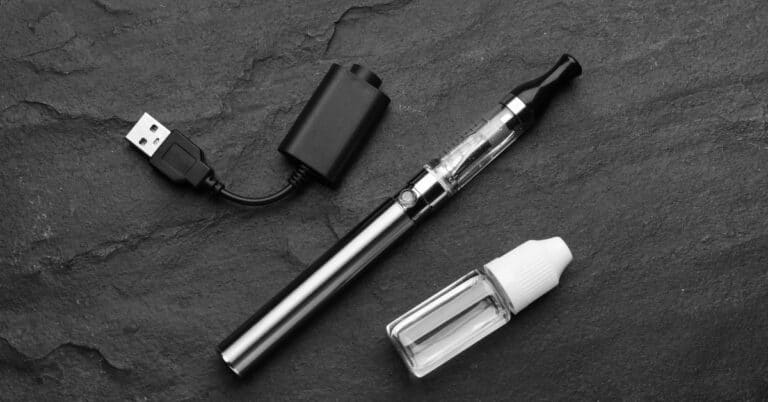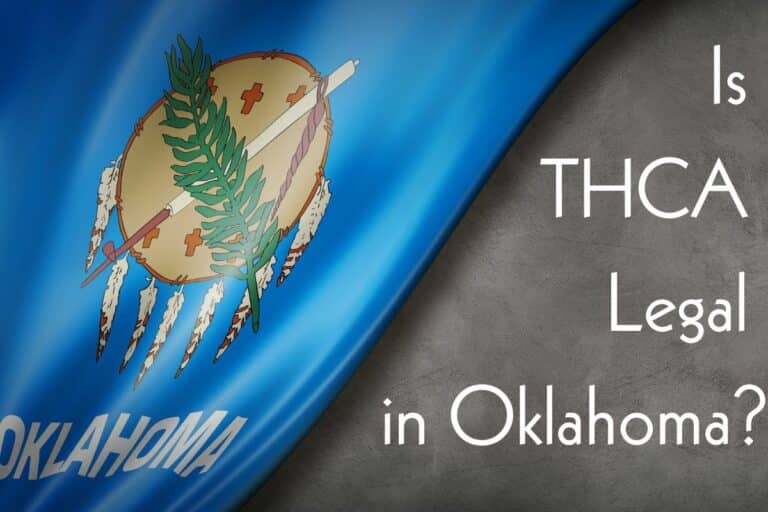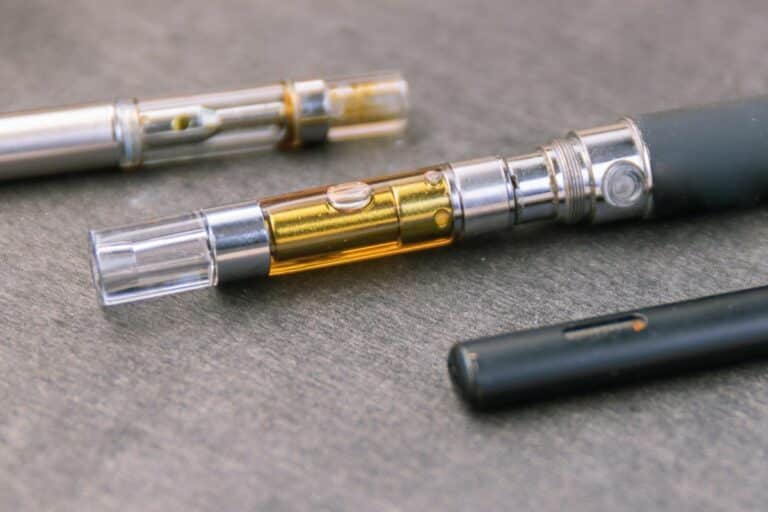Is THCP Legal in California? A Clear Guide to the Current Regulations
With the introduction of THC-P into the cannabis market, the game has changed; purchasing THC-P products is so easy now, you can walk into a store and get it and enjoy the therapeutic or relieving effects you want compared to the other cannabinoids, particularly THC. However, because of how relatively new THC-P is in the market, the status of its legality is an issue that bothers the minds of users over and over again.
No one wants to suffer legal repercussions because they got some cannabis so, in this article, we’ll look at the legality of THC-P, particularly in the state of California.
So, if you’re reading this from California, hey. Let’s get into the topic:
What is THC-P?
THC-P, or tetrahydrocannabiphorol, is a cannabinoid naturally found in the cannabis plant that has drawn considerable attention due to its potent psychoactive effects. Unlike the more familiar Delta-9 THC and other cannabinoids, THC-P features an extended alkyl side chain that significantly increases its binding affinity to CB1 receptors in the brain. This structural difference is believed to be what accounts for its heightened potency, with early research suggesting that even small doses of THC-P could produce effects that are several times stronger than those of Delta-9 THC.
The science understanding the unique properties of this compound is still developing to shed new light on how it interacts with the human endocannabinoid system but alongside its potential as a more powerful psychoactive agent, THC-P’s discovery and study let us know other important considerations regarding its therapeutic applications, medicinal use and legal status.
Potential Therapeutic Benefits of THC-P
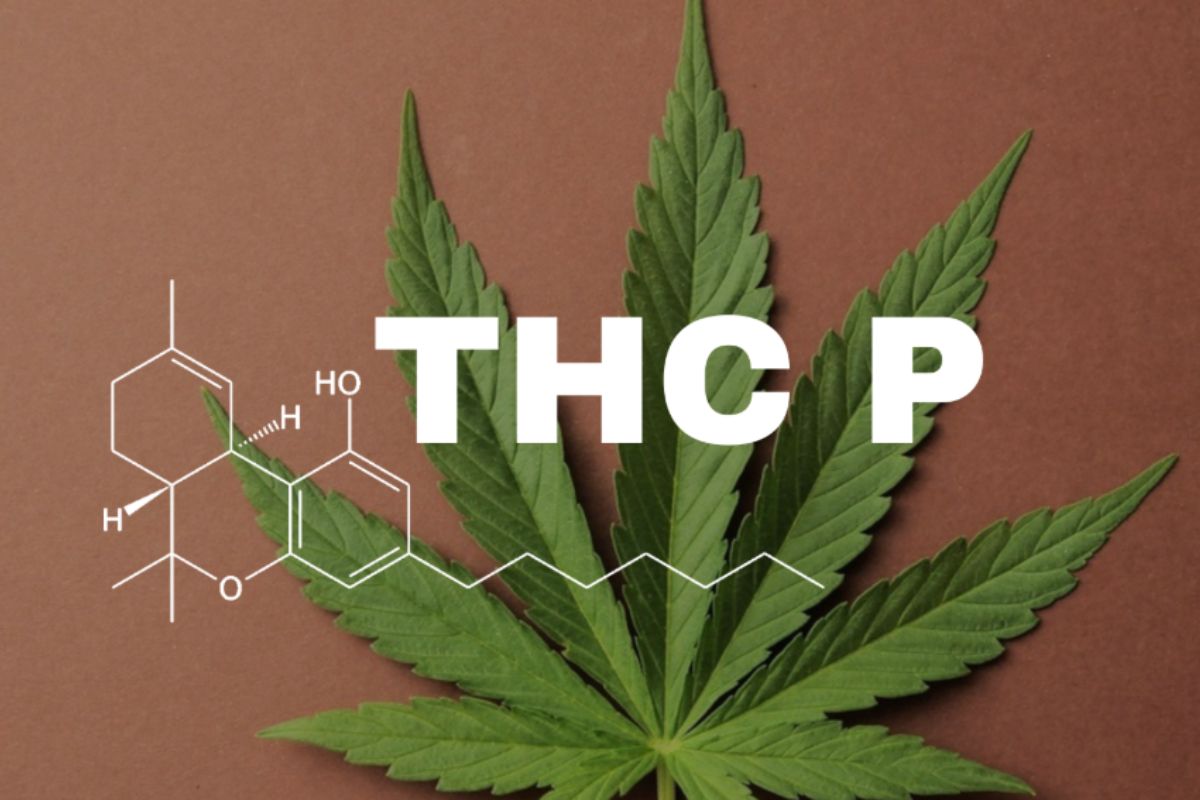
There are many benefits of the compound’s interaction with our endocannabinoid system that have been explored not only in terms of recreation but also for potential benefits in clinical settings, such as pain management or inflammation reduction, highlighting the medicinal use of cannabinoids . These benefits are discussed in detail below:
Sleep Facilitation
THC-P has sedative properties that can assist users who have difficulty falling asleep, promoting their relaxation and reducing their anxieties in the process. More than that, the cannabinoid then has the potential to improve the overall sleep cycles of its users, leading to more restful and restorative sleep experiences for them.
Blissful Euphoria
People who use THC-P often report experiencing intense feelings of happiness and well-being afterward. Apparently, this heightened euphoria then contributes to an overall improved mood and mental state for them.
Less Anxiety
Besides falling asleep, anxiety plays a general part in our daily lives, from the decisions we make to the situations we find ourselves in and research done into THC-P has shown that THC-P may induce a state of mental tranquility in a user, allowing the person to feel carefree and detached from daily stressors.
Deep Physical Relaxation
Given the potential of THC-P in reducing stress and anxiety in the body, it follows that the use of THC-P may help produce an intense physical relaxation in its user. This will be particularly useful to users who need help alleviating muscle tension and getting a sense of bodily ease.
At higher doses, THC-P can also induce a pronounced state of physical sedation, often referred to as “couch-lock,” where users feel a heavy, immobilizing relaxation. This effect can be desirable for those seeking deep rest but may be limiting for activities requiring alertness.
Heightened Sensory Perception
Based on its relaxing and stress-relieving properties, some users of THC-P have reported experiencing an amplification of sensory experiences, like an enhanced appreciation of music, art, or flavors, making activities more immersive and enjoyable after using THC-P.
Increased Appetite
In a similar fashion as other cannabinoids, THC-P may enhance appetite in people experiencing appetite loss due to medical conditions or treatments.
At this point, it’s important to state that while these effects and benefits are reported by users, individual experiences with THC-P can vary. This is why due to its potency, users are often advised to start with a low dose to assess their personal tolerance and response levels. You can also consult with a healthcare professional before using THC-P, especially if you have an underlying health condition or you’re taking other medications.
THC-P’s Legal Status: Federally Legal but State-Dependent
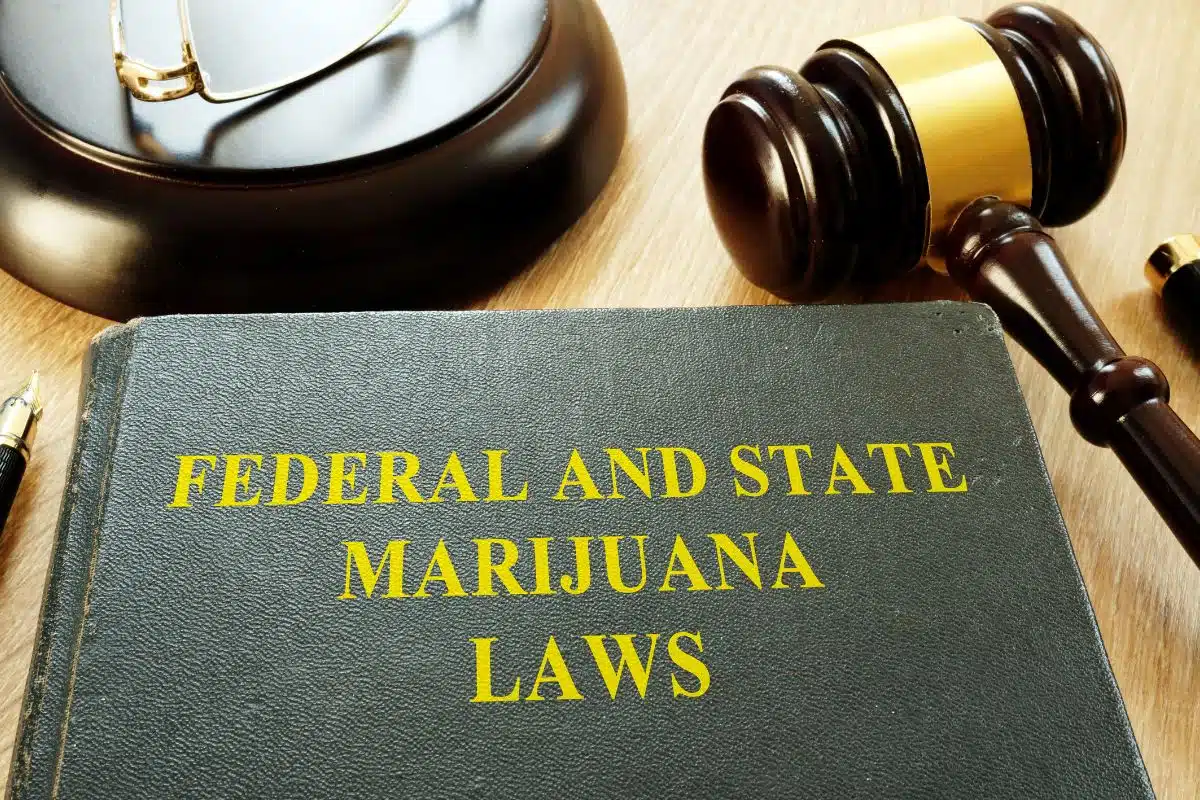
Because of the relative newness of THC-P to the scientific literature, regulatory frameworks governing it are still evolving in many jurisdictions, which is why we need to be informed about the latest legal updates and safety guidelines related to THC-P use. Now, let’s look at the legal status of THC-P under federal and state laws:
The 2018 Farm Bill
At this point, we’ll talk about the federal regulation we know as the 2018 Farm Bill because it marked a pivotal shift in the U.S. agricultural and drug policy by legalizing hemp and its derivatives, including lesser-known cannabinoids such as THCP. The legislation clarified that hemp-derived compounds are federally legal as long as the final product contains less than 0.3% Delta-9 THC. As a result, THCP—a cannabinoid attracting interest for its potential pharmacological properties—falls under this legal framework, allowing for its production and distribution without falling under the strict regulations that govern marijuana.
Generally, at the federal level, hemp products, including those containing THCP, are regulated by the U.S. Department of Agriculture (USDA). The USDA regulates these products to ensure that they meet specific criteria to maintain their legal status, particularly keeping their potency levels within the prescribed limit. As such, THCP is not considered a controlled substance under federal law.
California’s Cannabis Laws and Hemp Regulations
Looking at the full legal landscape including state law, California’s journey in cannabis regulation began with the Compassionate Use Act of 1996, also known as Proposition 215, which made it the first state to legalize medical marijuana.
It was a landmark cannabis law that allowed patients with a physician’s recommendation to possess and cultivate cannabis for personal medical use. The Act also aimed to provide relief to people suffering from chronic illnesses by granting them access to cannabis as a form of treatment.
Building upon this foundation, California voters approved Proposition 64 in 2016, legalizing the recreational use of cannabis for adults aged 21 and over. The initiative established a comprehensive regulatory framework to ensure that cannabis businesses operated safely and that products were free from contaminants. Key requirements under the framework included child-resistant and tamper-evident packaging, as well as clear labeling to inform consumers about the contents and potency of cannabis products.
In addition to these laws regulating cannabis, California has also implemented laws concerning hemp-derived products, such as THCP. The state of California mandates that these products comply with both state and federal regulations, including obtaining appropriate authorizations for manufacturing and distribution. However, recent emergency regulations that have been passed by the California Department of Public Health as recently as October 2023 have also come into play to prohibit the sale of any of these hemp-derived products, including legal thc-p products, that contain detectable amounts of THC, which is pretty much all of them. It’s an initiative based on the state’s commitment to safeguarding public health.
California’s Hemp Regulations and Their Impact on THCP
So now we know that California has implemented stringent regulations to safeguard consumers from intoxicating hemp products containing THC. Effective September 23, 2024, the emergency regulations passed by the state mandate that industrial hemp products like food, beverages, and dietary supplements intended for human consumption must contain no detectable levels of THC or other intoxicating cannabinoids per serving. Additionally, the regulations establish a minimum purchasing age of 21 for hemp products.
Introducing these regulations will affect the availability of THCP and hemp products in California because THCP, a cannabinoid known for its potent psychoactive effects, falls under the category of intoxicating cannabinoids targeted by the new rules. Consequently, the manufacture, distribution, or sale of THCP-infused consumables is effectively prohibited within the state. It is a development that has sparked legal challenges from industry stakeholders who argue that the regulations overreach and conflict with existing laws.
Currently, the enforcement of these regulations is a collaborative effort involving multiple state agencies, including the California Department of Public Health (CDPH), the Department of Cannabis Control, and the Department of Alcoholic Beverage Control (ABC), along with state and local law enforcement officials. Violations can result in misdemeanors, fines, imprisonment, and administrative disciplinary actions such as license suspension or revocation. As such, businesses are advised to comply promptly to avoid these penalties.
THC-P Products and Their Status in California
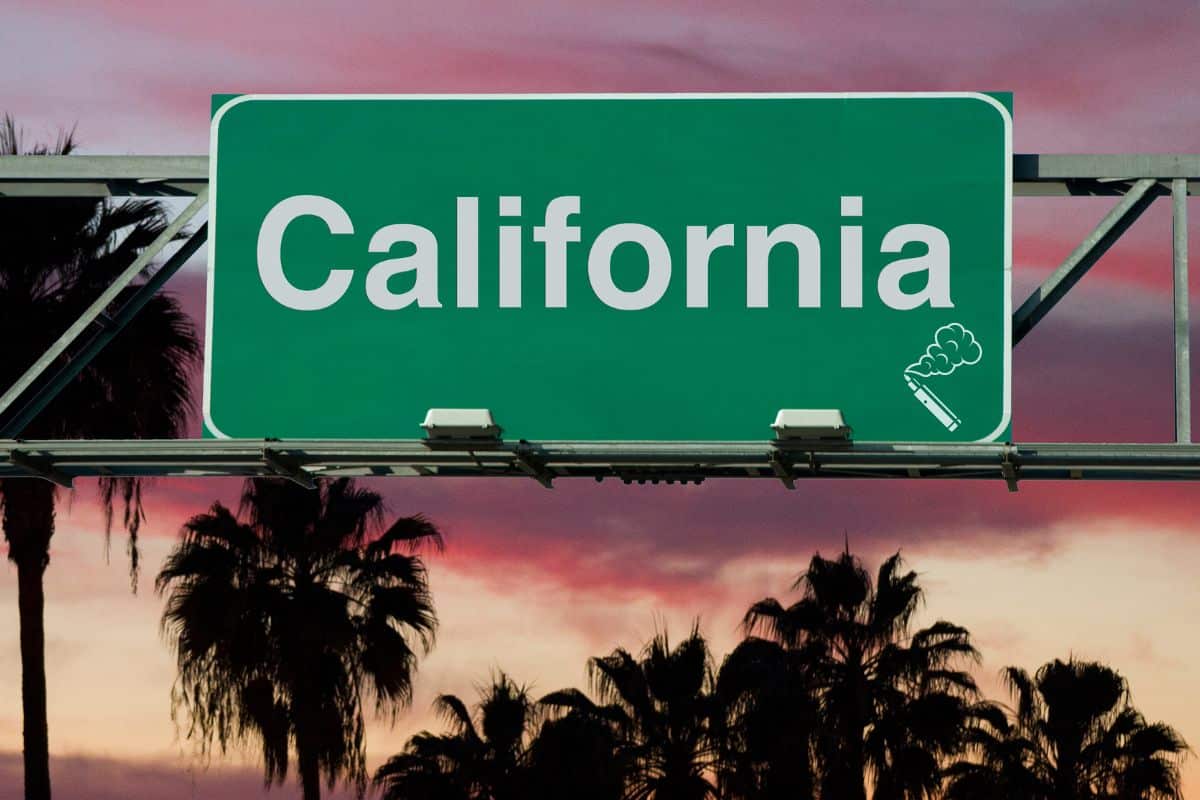
Though prohibited by California law, THCP still exists in various product forms within the state, including oils, tinctures, edibles like THCP gummies, disposable vape pens, and cartridges. Each form offers distinct consumption methods and onset times, catering to diverse user preferences.
For instance, vape cartridges and disposable vape pens are popular choices for THCP consumption due to their rapid onset of effects. Users of this cannabis product form often experience sensations such as euphoria, relaxation, and altered sensory perception shortly after inhalation. However, the potency of THCP necessitates cautious dosing when using vape pens and cartridges, because higher doses may lead to side effects like dry mouth, lightheadedness, or dizziness. Starting with a small puff and gradually increasing as needed is advisable for those new to THCP vapes.
Besides vape pens and cartridges, we also have tinctures that offer an alternative method of THCP consumption, typically administered sublingually (under the tongue). This method allows for faster absorption into the bloodstream, with effects potentially felt within 15 to 30 minutes and lasting between two to six hours. Sublingual application is attractive to users who want a discreet, controlled dosing, smoke-free experience.
Risks and Side Effects Associated with THCP
THCP is a significantly more potent cannabinoid due to its stronger binding affinity to CB1 receptors in the brain, and this heightened potency has raised concerns about potential side effects, especially considering the limited research on THCP’s safety profile intoxicating hemp products.
Users of such intoxicating hemp products containing THCP have commonly reported adverse effects like dizziness, dry mouth (xerostomia), and impaired motor coordination. The pronounced psychoactive properties of THCP have also been discovered to lead to more pronounced effects like an increased heart rate, anxiety, and paranoia, particularly in individuals sensitive to cannabinoids.
There have also been reports of dry eyes, sleep disturbances, and nervousness by users. Besides these, the substantial potency of THCP also increases the risk of overconsumption, which can intensify these adverse effects.
Overall, the long-term health implications of cannabis products containing THCP remain unclear due to the nascent stage of research into it. This is why users considering THCP and its unique chemical structure are advised to exercise caution, starting with minimal doses and consulting healthcare professionals, especially those with pre-existing health conditions or concerns about potential interactions with other medications.
Can THCP Cause a Failed Drug Test?
Consuming THCP can indeed result in a positive drug test. The gist of it is that standard drug screenings are designed to detect THC metabolites, particularly THC-COOH, which are produced when the body metabolizes THC compounds, including THCP. Therefore, even an occasional use of THCP can lead to detectable levels of these metabolites in your system, increasing the likelihood of a positive test result.
The detection window for THCP also varies depending on several factors, such as the frequency of use, individual metabolism, and the type of drug test administered. For instance, urine tests can detect THC metabolites from a few days up to several weeks after use, while hair follicle tests may reveal THC use for up to 90 days. Given these variables, it’s advisable to exercise caution and consider abstaining from THCP consumption if you anticipate an upcoming drug test.
Comparing THCP to Delta 9: Psychoactive Effects and Risks
THCP is a recently identified cannabinoid that exhibits psychoactive properties similar to delta-9-tetrahydrocannabinol (Δ9-THC), the primary intoxicating compound in cannabis. However, THCP’s distinctive chemical structure which includes a seven-carbon alkyl side chain compared to the five-carbon chain found in hemp-derived THC, significantly enhances THCP’s binding affinity to CB1 receptors in the brain, with studies indicating it binds up to 33 times more effectively than Δ9-THC. Consequently, THCP may induce more potent and longer-lasting psychoactive effects than traditional THC.
Δ9-THC is typically associated with side effects such as anxiety, dry mouth, increased appetite, memory impairment, red eyes, slowed reaction times, and rapid heart rate. On the other hand, the heightened potency of THCP raises concerns about more severe adverse reactions because, for instance, there have been reports of psychosis and suicide attempts following a single use of Δ9-THCP, suggesting that even experienced THC users can experience unexpected and intense effects due to THCP’s increased binding and potency.
Also, given the limited research on THCP, its full risk profile is still unclear, which underscores the need for caution and further investigation into its safety and potential therapeutic applications.
The National Legal Landscape for THCP

From what we’ve seen so far regarding the legal status of THCP federally and in California, it’s safe to say that THCP occupies a complex legal position in the United States. Federally, the 2018 Farm Bill has legalized hemp-derived cannabinoids, provided they contain less than 0.3% Delta-9 THC. However, state laws vary significantly, with some states like North Dakota and others imposing stricter regulations or outright bans on certain cannabinoids, including THCP.
In states such as Alabama, Connecticut, Florida, Georgia, Illinois, Kentucky, Louisiana, Maine, Massachusetts, Michigan, Minnesota, Missouri, Nebraska, New Hampshire, New Jersey, North Carolina, Ohio, Pennsylvania, South Carolina, South Dakota, Tennessee, Texas, West Virginia, New Mexico, and Wisconsin, THCP, derived from the hemp plant, is generally considered legal.
The Future of THCP: Emerging Trends and Regulations
At this point, we’ve learned pretty much all there is to know about the legal status of THCP in California, and in a nutshell, it’s a pretty complicated situation.
It is so complicated that some sources report it to be legal while some don’t, there isn’t a consensus on the subject; however, we know that there are emergency regulations that have spoken on the subject and tell us that the use of THCP is illegal within the state so when purchasing cannabis products containing THCP, make sure you confirm more than what we’ve given you here because who knows? By the time you’re reading this, THCP may have become fully legalized in the state.
So watch out for changes to the local laws in your state, buy products that have been verified with third-party lab reports, and take your THCP responsibly, having understood the different risks and side effects that come with a highly concentrated use of the substance.




